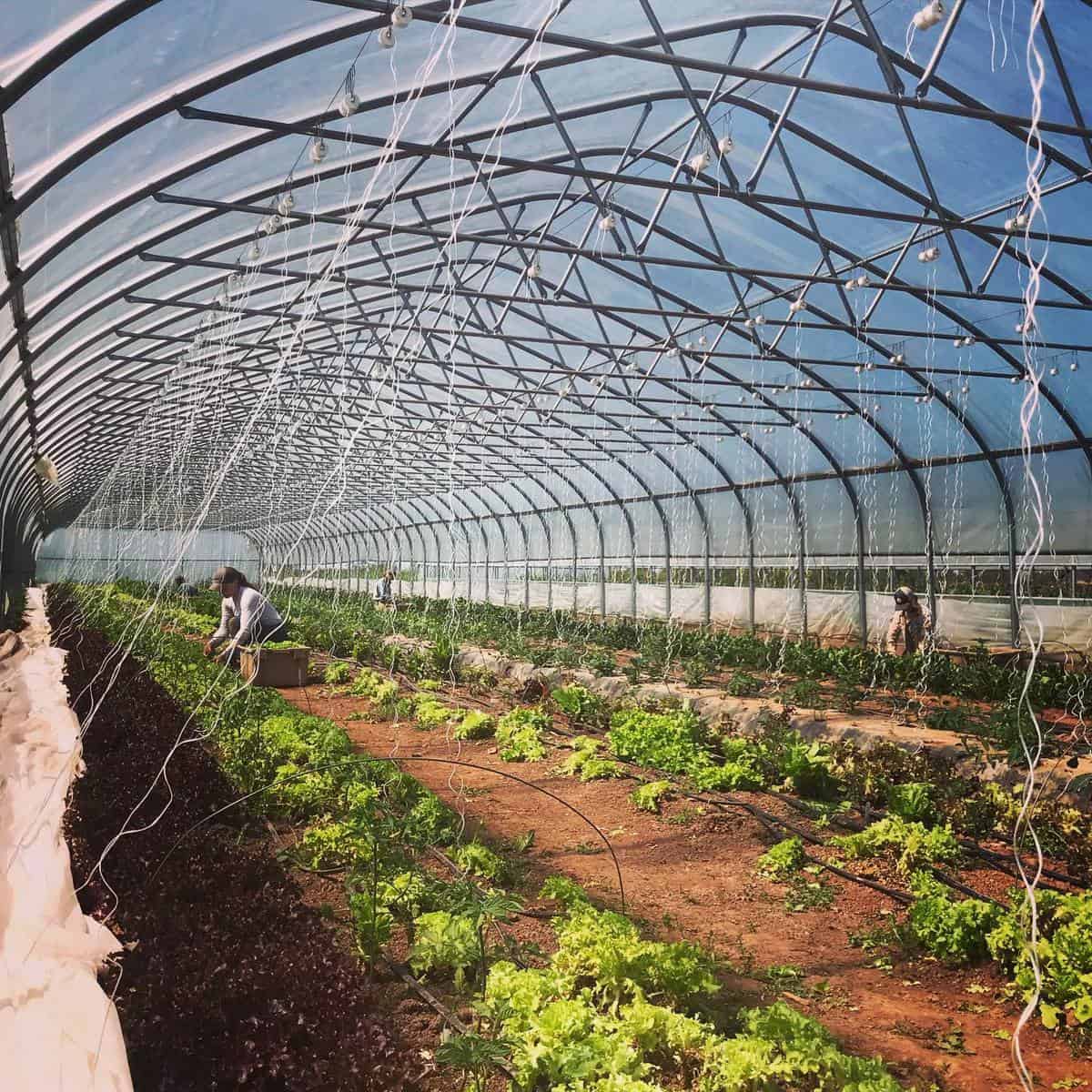Princeton area farmers see more CSA subscriptions as pandemic shifts food choices

Lawrence Mendies has had a line of customers out the door to sign up for his community-supported agriculture program, commonly known as a CSA. As he gears up for his 10th summer season on his farm in Roosevelt amidst a global pandemic, he and his wife, Heidi, are preparing for the unexpected like other area farmers.
Farms across central New Jersey have seen an uptick in demand for CSAs, where members pay a flat fee for weekly boxes of fresh vegetables, fruit, and more for the season. Many farmers see the rise in demand as a direct response to the coronavirus. At Chickadee Creek Farm in Pennington, membership is up 16 percent. Cherry Grove Organic Farm in Lawrence estimates a 10 to 15 percent increase from past years, and Whispering Orchards in Upper Freehold has also seen growth in their sales.
The situation in New Jersey reflects a national trend over the past two months of increased support for local agriculture as consumers worry about access to fresh fruits and vegetables and experts bring up age-old concerns about the global food system.
Chickadee Creek Farm owner Jess Niederer believes many of these new sign-ups were “folks that were existing non-CSA customers who, in response to the pandemic, felt a deeper connection to their local food supply.”
Some customers may also be concerned about their health and safety, said Cherry Grove Organic Farm owner Matt Conver.
“I know from a personal standpoint that going to the stores is a little unsettling these days,” he said. “I think people feel like coming to a farm, they’ll be exposed a lot less.”
Although farm owners have been happy to receive increased community support and income from their growing CSA programs, they have had to completely rethink their operations to ensure the safety of both customers and farm staff. From going online to scaling up production, farmers have been forced to change course in a matter of weeks in response to the crisis.
“We’ve had to change just about everything about the way we do business,” Niederer said, including setting up an online ordering platform “so that we can still let people pick out only the items they wanted, but also have contactless payment and pickup at those markets.”
The staff at Chickadee Creek had little to no experience with pre-packing individual orders and using e-commerce. The farm made the shift from being an a-la-carte farmers market business in less than a week in March when almost every market they normally attended shut down suddenly.
“I was not prepared for the huge amount of email loading and tech support that those moves would require,” Niederer said.
Whispering Orchards Farm owner Steve Zielinski has also moved sales online and plans to deliver orders of vegetables, eggs, and assorted meats directly to customers’ doors. He has waived the delivery charge. Zielinski has expanded production to meet the increased demand, but has struggled with delays at the two USDA inspected facilities where his meats are processed.
At the Mendies Farm, a staffing shortage has posed difficulties for Lawrence and Heidi Mendies. In past years, the couple relied in part on their volunteer and work-share programs, where, as Lawrence said, “instead of paying for your membership, you can work two to three hours per week and get more knowledge about how the food is being grown.”
The Mendies have discontinued using volunteers for now due to concerns about the health and safety of the participants.
“No one except my wife and I are allowed inside our growing areas. We’re working twice as hard right now to get through this,” Lawrence Mendies said. He described the difficult decision farmers are now faced with — profit versus safety.
For Conver, new, strict protocols at farmers’ markets have posed a financial challenge.
While he would typically send only one staff member to the market, Conver expects to send two or three members to each market this year in order to have someone dedicated exclusively to handling money or credit cards.
“Labor is always the biggest cost, so that’s a little worrisome,” he said.
It is not yet clear whether increased CSA memberships will provide sufficient income to sustain local farms through the pandemic, as other sources of revenue have taken major hits. Farm sales to restaurants, schools, universities and consumers at farmers’ markets are all projected to decrease for a total loss of up to $1.32 billion between March and May, according to a report by the National Sustainable Agriculture Coalition. A recent survey of small, independent farmers across the country found that nearly one-third of participants are potentially facing bankruptcy in 2020.
Doubts have also arisen regarding the longevity of local food’s newfound popularity. Farmers wonder whether CSA members will maintain the same fervor for supporting local farms as the pandemic situation improves.
In the face of the many challenges posed by the pandemic, some farm owners have responded with unhampered positivity.
Conver sees adaptability simply as a part of the job, and described the current crisis as, in some ways, “just another uncertainty.” With nearly two decades of experience under his belt, he is sure that Cherry Grove Organic Farm will be fine but added that newer farms will likely have a tougher time.
For Mendies, farming has always been about building community and “taking care of everyone of all different [socioeconomic] levels by providing them with food.” These are the things that made him fall in love with farming ten years ago, and that keep him going now.


Honeybrook Organic Farms (www.honeybrookorganicfarm.com) in Hopewell Township is pretty well sold out on their farm shares for the first time after many years of declining membership. Happy to see this trend reversing.
The reporter reached out and tried to interview someone from Honeybrook for this story, but did not get a response.